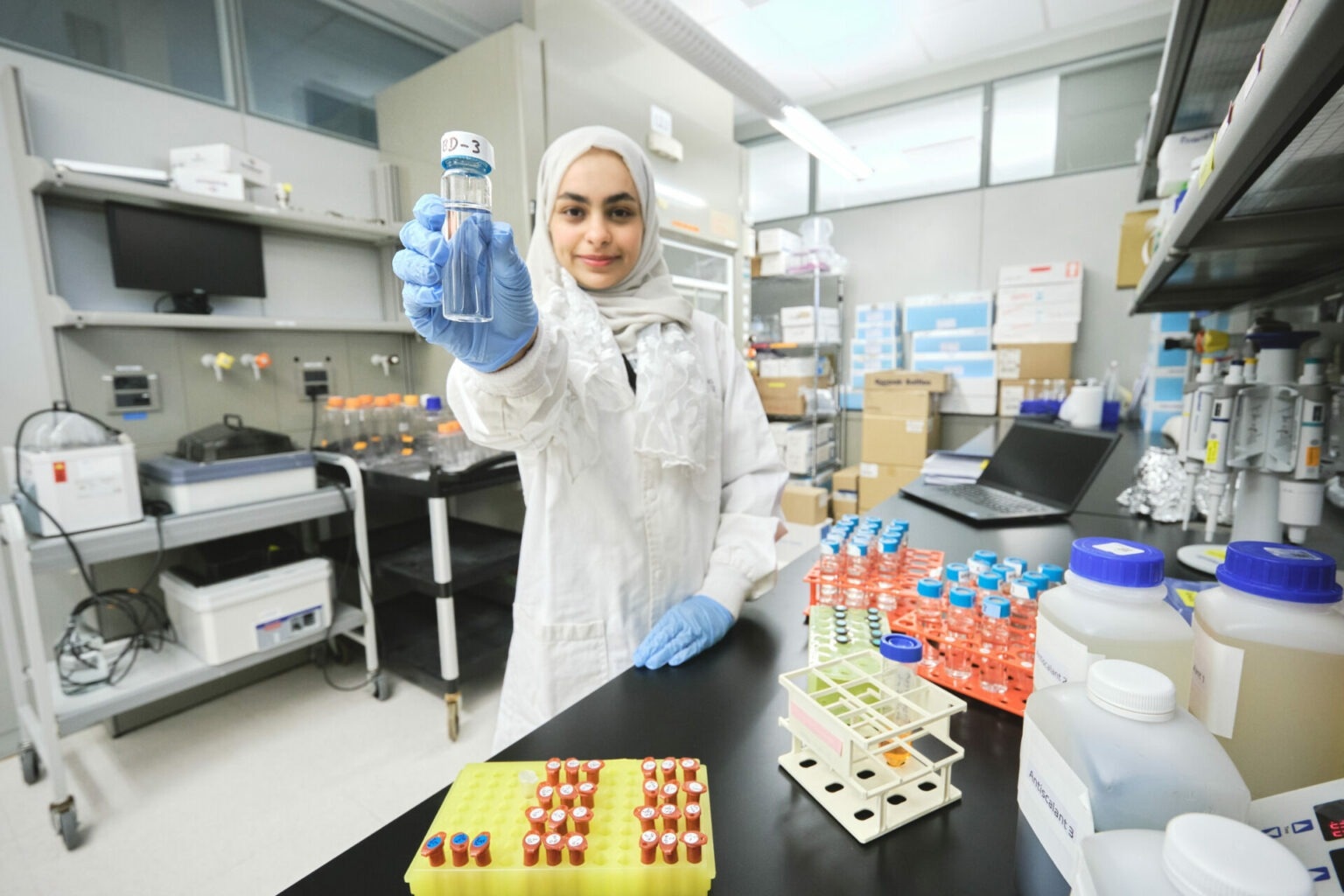Identifying the biofouling-causing components of membrane antiscalants could aid in making seawater desalination a more sustainable source of fresh water.

Ghadeer Hasanin worked with KAUST's Professor Johannes S. Vrouwenvelder and industry partner ACWA Power to explore ways to improve membrane efficiency in seawater desalination. Image Credit: © 2023 KAUST; Eliza Mkhitaryan
“Safe drinking water is a human right,” states Environmental Scientist Graciela Gonzalez-Gil, “yet roughly 800 million people have no access.” According to the United Nations, demand for freshwater could exceed the natural water cycle supply by up to 40% by 2030.
Seawater desalination—particularly by reverse osmosis (SWRO), which involves pressurizing seawater through a membrane at high pressure to remove salt and impurities—has become a widely adopted low-cost source of drinking water in arid coastal countries.
Ratul Das, Head, Desalination R&D, ACWA Power
Ratul Das is Gonzalez-Gil’s colleague and KAUST alumni. ACWA Power has 16 water seawater desalination plants across four countries.
However, SWRO consumes a lot of energy, and the membranes utilized generate a lot of waste. To avoid salt scaling on the membranes, seawater is routinely pretreated with antiscalants.
“The low cost of these chemicals compared to other methods helps keep water prices low, hence their popularity,” notes Das. However, many of them cause fouling by encouraging microbial growth.
“Desalination operators are not fully informed about why and to what extent antiscalants cause biofouling. Measuring the bacterial growth caused by different antiscalants and linking this to their chemical composition can help these operators select products with minimal biofouling,” comments Gonzalez-Gil.
Gonzalez-Gil’s team prepared vials of natural seawater containing a low initial concentration of indigenous bacteria. They measured daily bacterial growth in separate vials after adding one of eight common antiscalants and contrasted it to bacterial growth in seawater without antiscalants.
“We measured the carbon, phosphorous, and nitrogen content of each antiscalant and used nuclear magnetic resonance to get a more detailed chemical fingerprint,” adds Gonzalez-Gil.
The researchers discovered that certain antiscalants contained compounds other than active ones. One contaminant in particular, orthophosphate, clearly aided bacterial growth.
“Surprisingly, not all phosphanate-based antiscalants were contaminated with orthophosphates, such as HEDP (1-hydroxyethylidene-(1,1-diphosphonic acid), which was also the only antiscalant that didn’t promote bacterial growth,” notes Gonzalez-Gil.
The chemical fingerprinting technology developed by scientists could help manufacturers customize antiscalants to incorporate fewer bacteria-promoting compounds.
Reducing biofouling will reduce the energy required for SWRO. It will lower the costs of desalination and, by reducing greenhouse emissions, will help to protect the planet.
Ratul Das, Head, Desalination R&D, ACWA Power
Despite a prospective lifespan of 10 to 15 years, reverse osmosis membranes are generally replaced every three to five years. “Minimizing biofouling will extend their useful life and reduce the membrane waste deposited to landfill,” adds Gonzales-Gil.
Das intends to create a low-tech test that may be used at desalination plants around the world. “We want to eliminate ‘black boxes’ in the desalination industry and drive greener initiatives that have impact for Saudi Arabia and internationally,” he concludes.
Journal Reference
Hasanin, G., et al. (2023). The microbial growth potential of antiscalants used in seawater desalination. Water Research. doi.org/10.1016/j.watres.2023.119802.
Source: https://www.kaust.edu.sa/